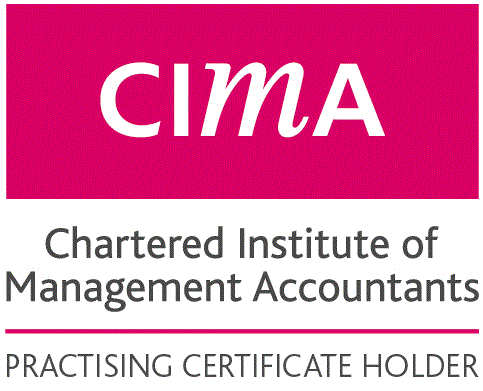

Do I Need to Hire a Bookkeeper? | Outsource Bookkeeping for Small Businesses UK
Let’s be real for a second - bookkeeping isn’t why you started your business, right?
If you’re a small business owner in the UK, chances are you’ve found yourself juggling ten different roles: sales, customer service, marketing… and yes, even finance. Somewhere along the way, that “quick admin job” turns into hours of reconciling transactions, chasing receipts, and battling spreadsheets that seem to have a mind of their own.
So it’s no surprise the question comes up: Do I need to hire a bookkeeper?
The short answer? Maybe. The better answer? Let’s explore it together.
In this blog, we’ll break down what a bookkeeper actually does, when you should consider hiring one, the pros and cons, and how to outsource bookkeeping in a way that makes financial and operational sense for your business.
Ready? Let’s get into it.
1. What Does a Bookkeeper Actually Do?
Let’s start with the basics. A bookkeeper is the person who keeps your business finances neat, tidy, and HMRC-compliant. Think of them as the financial housekeeper of your business - they may not cook the meals (that’s your accountant's job when they prepare tax returns), but they keep the kitchen clean and organised every single day.
Here’s what a typical bookkeeper handles:
Recording daily transactions
Reconciling bank statements
Managing your sales and purchase ledger
Tracking invoices and payments
Organising receipts and business expenses
Preparing VAT returns
Supporting payroll
In short, they make sure your numbers are accurate, up to date, and ready when your accountant needs to step in at year-end. If you outsource bookkeeping, you’re essentially freeing yourself from a massive administrative headache.
2. Signs It’s Time to Hire a Bookkeeper
So how do you know when it’s time to stop DIY-ing your finances and bring in the pros? There’s no one-size-fits-all answer, but here are a few clear signs:
You’re Always Playing Catch-Up
If bookkeeping tasks constantly get bumped down your to-do list, it’s a red flag. Falling behind can lead to costly mistakes - missed invoices, late VAT submissions, and even penalties from HMRC.
You Have No Clear Picture of Your Finances
If you’re not 100% sure how much profit you made last month or whether your cash flow can support hiring a new team member, your books might be in need of professional help.
You Dread Self-Assessment Season
When January rolls around and you’re frantically digging for receipts, that’s a sign your bookkeeping system isn’t working. A bookkeeper can make tax season feel like just another Tuesday.
You’re Growing (Fast)
Scaling up is exciting - but it also brings complexity. If you’ve started hiring staff, offering multiple products or services, or expanding into new markets, your financial management needs to level up too.
Your Accountant Is Doing Your Bookkeeping
If you’re paying accountancy rates for bookkeeping tasks, you’re overspending. Many accountants prefer you outsource bookkeeping separately so they can focus on higher-level financial planning and reporting.
3. The Benefits of Hiring or Outsourcing a Bookkeeper
Still on the fence? Let’s break down the key advantages:
More Time to Focus on Growth
Time is your most valuable resource. Every hour you spend balancing books is an hour you could spend signing new clients, developing new services, or actually enjoying your life.
Better Financial Insights
With consistent and accurate bookkeeping, you’ll always know where your business stands. That means better decisions, less stress, and no nasty surprises.
Reduced Risk of HMRC Penalties
Messy books can lead to late VAT returns, incorrect submissions, or missed payments. A qualified bookkeeper helps ensure compliance and keeps you out of trouble.
Increased Profitability
Yes, hiring a bookkeeper costs money. But the ROI is often much higher. By helping you spot leaks in your spending, chase late payments, and identify profit gaps, your bookkeeper can actually increase your bottom line.
Peace of Mind
Knowing your finances are handled properly? Priceless. When you outsource bookkeeping, you sleep better—simple as that.
4. In-House vs Outsourced: What’s Right for You?
Once you’ve decided to hire a bookkeeper, the next question is how you do it.
You’ve got two main options:
Option 1: Hire In-House
This can work well for larger businesses with more complex needs. Having someone on-site allows for quicker collaboration and communication. But it also means dealing with employment contracts, holiday pay, sick leave, and payroll.
Option 2: Outsource Bookkeeping
For most small businesses, outsourcing is the smarter move. You only pay for what you need, you can scale it as your business grows, and you get access to a wider pool of experienced professionals.
Most outsourced bookkeepers in the UK work remotely and use cloud accounting tools like Xero, QuickBooks, or FreeAgent. You’ll be able to upload receipts from your phone, see your numbers in real time, and communicate via email or phone. It’s simple, efficient, and cost-effective.
5. How to Choose the Right Bookkeeper
If you’re ready to outsource bookkeeping, don’t just go with the first name that pops up on Google. Here’s what to look for:
Relevant experience: Do they work with businesses in your industry or of your size?
Software knowledge: Are they certified in the accounting software you use (or plan to use)?
Qualifications: Look for membership in a professional body like AAT, ICB, or IAB.
Clarity on pricing: Are their fees transparent? Do they charge hourly, monthly, or per transaction?
Communication style: Do they explain things clearly without jargon? Can you see yourself working with them long term?
Ask for a discovery call. A good bookkeeper won’t just “do your books” - they’ll become a valuable part of your team, helping you understand your finances and make better decisions.
6. Cost vs Value: Is It Worth It?
A common hesitation is, of course, cost. So let’s talk numbers.
The average UK bookkeeper charges anywhere from £20 to £50 per hour. Many offer fixed monthly packages starting from around £100 - £250 per month depending on the volume of transactions, number of accounts, and complexity.
But let’s flip the question: How much is your time worth?
If you spend 8 hours a month on bookkeeping (and many spend more), you could be losing hundreds in potential revenue, not to mention the mental load.
Plus, mistakes cost money. A missed VAT deadline? That’s a £100 fine minimum. An inaccurate return? Risk of investigation and interest charges. The cost of outsourcing bookkeeping is often less than the cost of DIY errors.
Final Thoughts: Is a Bookkeeper Right for You?
Here’s the honest truth: Not every small business needs a bookkeeper right out of the gate. But most businesses reach a point where doing it yourself is no longer the smartest - or most profitable - option.
If you:
Want more clarity around your numbers
Struggle to stay organised
Dread tax season
Or just want to spend less time staring at spreadsheets
...then it might be time to outsource bookkeeping and hand it over to the pros.
Think of it as an investment in your business’s growth, stability, and sanity.
The right bookkeeper won’t just tidy up your books - they’ll give you the freedom to actually grow your business, improve profitability, and sleep a little easier at night. And who wouldn’t want that?

FREE DOWNLOADS
A-Z of allowable business expenses
Download your A-Z guide of allowable business expenses.
Financial Housekeeping For Your Small Business
Download your guide to Financial Housekeeping For Your Small Business - ideal for start ups and early stage businesses
How to Scale Up your Business: Tips and Strategies for Success
Download your guide to How to Scale up your Business - ideal for slightly more established businesses that want to grow and scale their business
Don't want the guide?
But do want our regular email filled with tips and insights into business and how to maximise profit and grow your business?
Click here

Ready to take the stress out of finance?

Not quite ready to commit to a long term contract ? Book a value packed Power Hour for now at £180 Inclusive of VAT.






© 2023 All Rights Reserved | Sterling Financial Management Reg No 9780783,
Accounting, Bookkeeping and Business Advisory in Dorking Surrey RH4 2JF